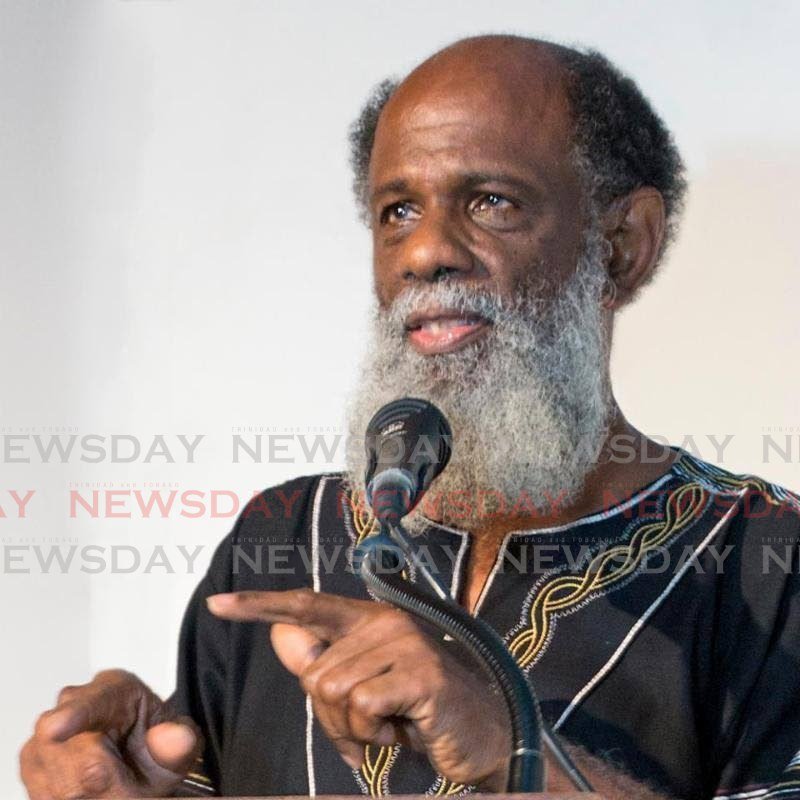Kambon: 1970 was about Black Power

KHAFRA KAMBON, former head of the Emancipation Support Committee, sharply disagreed with former colleagues in NJAC, to assert that the 1970 unrest was in fact about Black Power, but not narrowly defined. He spoke at History Fest 2020 at the Alma Jordan Library at the University of the West Indies, St Augustine.
The exchange began with NJAC general secretary Montsho Masimba saying in his remarks that 1970 was more accurately described as a Trinidad and Tobago Revolution rather than a Black Power Revolution.
Next, poet Eintou Springer took a very different view by saying she had joined NJAC as she said it was perceived an as African organisation.
“To me I see no dichotomy in standing strong in who you are and holding out your hand to your (non-African) brother or sister.”
While Kambon had given his address before Masimba, he briefly returned to the podium later to reply to him.
Saying he was a founding member of NJAC at UWI, he said he had only ever heard a claim that 1970 was not about Black Power some 20 years afterwards.
“Makandal Daaga shocked me by saying it was Ken Gordon who had labelled the movement ‘Black Power’. I heard it again today. That is not true.
“We in NJAC adopted it as our ideological foundation.” Kambon said no-one can show that NJAC had ever rejected that statement of Black Power.
“From that statement of Black Power came the challenge of bringing about unity in the society. That was what the march to Caroni was about. The outreach to Indians was there from the start.”
Kambon recalled one of NJAC’s founding fathers was Winston Leonard, an East Indian.
“I challenge anybody on that,” Kambon said.
“Saying he had almost lost his life in 1970, he said, “I feel very strongly about it.”
Newsday later asked Kambon if by the word black he meant African or African and East Indian together. He replied African and East Indian.
“That is very clear. It is written in many places.” Kambon claimed Springer was not a founding member of NJAC, but had joined upon her return from England.
Panelist Josanne Leonard urged that the history of 1970 be properly documented, while many of its actors were still alive, to educate young people.
“With memory going, we need a continuum. We have to document the stories. The canvass will be filled.”
In contrast to the great consciousness of youngsters in 1970, she feared society was now regressing into neo-liberal values, threatening youngsters’ desire to know about themselves in this society.
“Put history onto the agenda in schools.
Tell the story of that period.
“I want to remember Walter Rodney especially in terms of what is happening in Guyana today,” Leonard implored, recalling a prominent activist’s death in repressive times.
University of Trinidad and Tobago lecturer Dr Kela Francis in her address lamented the fleetingness of ideas on advocacy and ideology in this social media era. A UWI student queried this, saying she personally was keen to learn over the internet.
Leonard suggested the new technology could be employed to help gather information to plug gaps in TT’s historical record.
She observed that while the students of 1970 risked jail by reading banned literature, today’s youth do not read those works as they are now victims of tele-colonialism, addicted to their cell-phones.

Comments
"Kambon: 1970 was about Black Power"